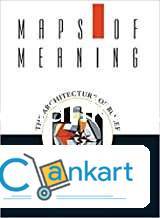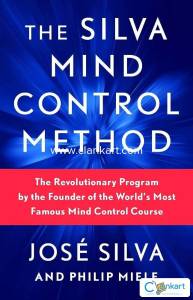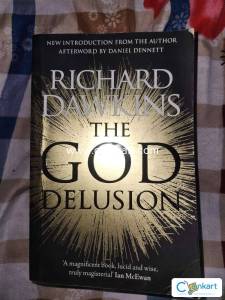Buy used Philosophy online in India
Buy Second Hand Books, Used Books Online In India
Ikigai book English
Bring meaning and joy to all your days with the internationally bestselling guide to ikigai.According to the Japanese, everyone has an ikigai – a reason for living. And according to the residents of the Japanese island of Okinawa – the world’s longest-living people – finding it is the key to a happier and longer life.Inspiring and soothing, this book will bring you closer to these centenarians’ secrets: how they leave urgency behind; keep doing what they love for as long as possible; nurture friendships; live in the moment; participate in their communities and throw themselves into their passions. And it provides practical tools to help you discover your own personal ikigai. Because who doesn’t want to find the joy in every day?
The secret
The worldwide bestselling phenomenon that has helped millions tap the power of the law that governs all our lives to create—intentionally and effortlessly—a joyful life.In 2006, a groundbreaking feature-length film revealed the great mystery of the universe—The Secret—and, later that year, Rhonda Byrne followed with a book that became a worldwide bestseller.Fragments of a Great Secret have been found in the oral traditions, in literature, in religions, and philosophies throughout the centuries. For the first time, all the pieces of The Secret come together in an incredible revelation that will be life-transforming for all who experience it.In this book, you’ll learn how to use The Secret in every aspect of your life—money, health, relationships, happiness, and in every interaction you have in the world. You’ll begin to understand the hidden, untapped power that’s within you, and this revelation can bring joy to every aspect of your life.The Secret contains wisdom from modern-day teachers—men and women who have used it to achieve health, wealth, and happiness. By applying the knowledge of The Secret, they bring to light compelling stories of eradicating disease, acquiring massive wealth, overcoming obstacles, and achieving what many would regard as impossible.
WHO WILL CRY WHEN YOU DIE?
Çocukluğumda babam, bana asla unutamayacağım bir şey söylemişti: "Evlat, doğduğunda tüm dünya gülümserken sen ağlıyordun. Öyle bir yaşam sür ki öldüğünde tüm dünya ağlarken sen gülümse." Hayatın gerçek anlamını unuttuğumuz bir çağdayız. Ay'a bile gidilebiliyorken arkadaşlarımıza zaman ayıramıyoruz. Dünyanın diğer ucundaki bir hedefi on ikiden vurabiliyoruz ama çocuklarımızla vakit geçiremiyoruz. İnsanlığımızla bağlarımızı yitirdik. Amacımızı kaybettik. En önemli değerlerimizi unuttuk.Bu yüzden şimdi size içtenlikle soruyorum: Siz ölünce kim ağlayacak? Hala hayattayken kaç yaşamı etkileyeceksiniz? Gelecek nesillere nasıl bir miras bırakacaksınız?Robin Sharma, 101 basit öneriyle içinizdeki boşluğu, derin bir huzur, tutku ve amaçla doldurmanız, yüreğinizdeki ışığı ortaya çıkarıp zengin bir hayat sürmeniz için size yol gösterecek...“Sharma, aydınlanma yolunda okurlarına rehberlik ediyor.” — The Chronicle-Herald
MAPS OF MEANING- JORDAN B PETERSON book on SALE
Why have people from different cultures and eras formulated myths and stories with similar structures? What does this similarity tell us about the mind, morality, and structure of the world itself? Jordan Peterson offers a provocative new hypothesis that explores the connection between what modern neuropsychology tells us about the brain and what rituals, myths, and religious stories have long narrated. A cutting-edge work that brings together neuropsychology, cognitive science, and Freudian and Jungian approaches to mythology and narrative, Maps of Meaning presents a rich theory that makes the wisdom and meaning of myth accessible to the critical modern mind.
THE SUBTLE ART OF NOT GIVING A F*CK-HARDCOVER at dscount price
New York Times BestsellerIn this generation-defining self-help guide, a superstar blogger cuts through the crap to show us how to stop trying to be "positive" all the time so that we can truly become better, happier people.For decades, we’ve been told that positive thinking is the key to a happy, rich life. "F**k positivity," Mark Manson says. "Let’s be honest, shit is f**ked and we have to live with it." In his wildly popular Internet blog, Manson doesn’t sugarcoat or equivocate. He tells it like it is—a dose of raw, refreshing, honest truth that is sorely lacking today. The Subtle Art of Not Giving a F**k is his antidote to the coddling, let’s-all-feel-good mindset that has infected modern society and spoiled a generation, rewarding them with gold medals just for showing up.Manson makes the argument, backed both by academic research and well-timed poop jokes, that improving our lives hinges not on our ability to turn lemons into lemonade, but on learning to stomach lemons better. Human beings are flawed and limited—"not everybody can be extraordinary, there are winners and losers in society, and some of it is not fair or your fault." Manson advises us to get to know our limitations and accept them. Once we embrace our fears, faults, and uncertainties, once we stop running and avoiding and start confronting painful truths, we can begin to find the courage, perseverance, honesty, responsibility, curiosity, and forgiveness we seek.There are only so many things we can give a f**k about so we need to figure out which ones really matter, Manson makes clear. While money is nice, caring about what you do with your life is better, because true wealth is about experience. A much-needed grab-you-by-the-shoulders-and-look-you-in-the-eye moment of real-talk, filled with entertaining stories and profane, ruthless humor, The Subtle Art of Not Giving a F**k is a refreshing slap for a generation to help them lead contented, grounded lives.
BEST MIND CONTROL BOOK
Since The Silva Mind Control Method was first published in hardcover, over one million people (including top celebrities) have graduated from Mind Control training to use their minds at a deeper and more effective level, even in their sleep!Based on the extraordinary 4-day course pioneered by Jose Silva, this life-transforming book shows how people have learned to overcome tension, bad habits, emotional insecurity, and even illness with the techniques of Mind Control.
JANAKA AND ASHTAVAKRA: A Journey Beyond
The story of a sage Ashtavakra and his disciple king Janaka is one of the most gripping yet unknown episodes from the Ramayana. A young boy Ashtavakra goes to king janaka’s Court to debate the kingdom most learned sages but is ridiculed by the courtiers for his deformed body. After the boy triumphs in the debate, Janaka realizes that the boy has an extraordinary intellect and becomes his disciple. While Janaka is obsessed with his quest for spiritual liberation, a treacherous plan unfolds inside the secretive world of the royal palace. Very soon war clouds gather on the horizon of Mithila, but all Janaka does is devote more and more time to the young sage. Even though the whole world believes a calamity is imminent, Janaka stays on the path to spiritual enlightenment. Ultimately, with Ashtavakra’s guidance, the king enters the realm of a new world which alters the reality for him and his kingdom. This novel is rooted in ancient Indian spiritual wisdom and philosophy, but with new interpretations of the concepts of liberation, enlightenment, consciousness and the realities of life. Among others, It seeks to answer the question: is everything we see indeed an illusion? This compelling story sheds light on the modern readers’ existential questions, leading them to relate to the king and his struggles.
+27685771974 BRING BACK LOST LOVE SPELL CASTER IN PRETORIA,PRETORIA
English summary: This work, which many regard as Karl Popper's most important for the scientific world, is being published in a new edition as part of the Collected Works. In Popper's opinion, it is a mistake to consider scientific knowledge to be certain knowledge. He maintains that, on the contrary, scientific knowledge consists of bold speculations and of strictly examined but in reality provisional conjectures. German description: Karl Popper stellt in seinem Hauptwerk, der Logik der Forschung, die Erkenntnistheorie als Methodologie dar, die erklart, warum unser Wissen fehlbar ist und warum wir nicht primar aus erfullten, sondern aus gescheiterten Erwartungen lernen: Der Erkenntnisfortschritt resultiert aus Versuch und Irrtum. Die bedeutendsten Resultate des Buches sind das Falsifizierbarkeitskriterium zur Abgrenzung wissenschaftlicher Satze und Poppers Vorschlag zur Losung des Problems der empirischen Basis der Wissenschaft. Sein Abgrenzungskriterium loste das neopositivistische Sinnkriterium ab, nach dem nicht verifizierbare Satze sinnlos sind, und seine These, auch Beobachtungssatze seien, wegen der Transzendenz dessen, was sie darstellen, uber das, was wahrgenommen wurde, fehlbare Hypothesen, beendete die Protokollsatzdebatte im Wiener Kreis. Mit der Verallgemeinerung der Idee der Prufbarkeit zur Idee der Kritik entstand aus dem Neoempirismus der kritischen Rationalismus.[...] gehort Poppers Buch zu den wichtigsten gegenwartigen Arbeiten auf dem Gebiet der Wissenschaftslogik. [...] Es wird Zustimmung und Widerspruch auslosen...Rudolf Carnap in Erkenntnis, Bd. 5 (1935), S. 294Nach der Kreativitat in der Wissenschaft zu fragen, setzt voraus, dass wir wissen, was eine wissenschaftliche Entdeckung ist. Dies bedeutet aber wiederum, die Logik der wissenschaftlichen Entdeckung zu erfassen. [...] Poppers Prinzip ist damit die Basis aller Wissenschaft. Wer es nicht anwendet, scheitert. Frankfurter Allgemeine Zeitung, Fernausgabe vom 24.12.1974Mir gefallt das ganze modische 'positivistische' Kleben am Beobachtbaren
English novela for 2nd bcom
Animal Farm is an allegorical novella by George Orwell.The book tells the story of a group of farm animals who rebel against their human farmer, hoping to create a society where the animals can be equal, free, and happy. Ultimately, however, the rebellion is betrayed, and the farm ends up in a state as bad as it was before, under the dictatorship of a pig named Napoleon.One night, all the animals at Mr. Jones' Manor Farm assemble in a barn to hear old Major, a pig, describe a dream he had about a world where all animals live free from the tyranny of their human masters. Old Major dies soon after the meeting, but the animals — inspired by his philosophy of Animalism — plot a rebellion against Jones. Two pigs, Snowball and Napoleon, prove themselves important figures and planners of this dangerous enterprise. When Jones forgets to feed the animals, the revolution occurs, and Jones and his men are chased off the farm. Manor Farm is renamed Animal Farm, and the Seven Commandments of Animalism are painted on the barn wall...
Computer Science and Engineering
The book not only covers the entire scope of the subject but explains the philosophy of the subject. This makes the understanding of this subject more clear and makes it more interesting. The book will be very useful not only to the students but also to the subject teachers. The students have to omit nothing and possibly have to cover nothing more
Mythology book
Smeared with ash, draped in animal hide, he sits atop the snow-capped mountain, skull in hand, withdrawn, with dogs for company, destroying the world with his indifference. He is God who the Goddess shall awaken. His name is Shiva. Locked in his stories, symbols and rituals are the secrets of our ancestors. This book attempts to unlock seven.
The God Delusion by Richard Dawkins
The God Delusion caused a sensation when it was published in 2006. Within weeks it became the most hotly debated topic, with Dawkins himself branded as either saint or sinner for presenting his hard-hitting, impassioned rebuttal of religion of all types.His argument could hardly be more topical. While Europe is becoming increasingly secularized, the rise of religious fundamentalism, whether in the Middle East or Middle America, is dramatically and dangerously dividing opinion around the world. In America, and elsewhere, a vigorous dispute between 'intelligent design' and Darwinism is seriously undermining and restricting the teaching of science. In many countries religious dogma from medieval times still serves to abuse basic human rights such as women's and gay rights. And all from a belief in a God whose existence lacks evidence of any kind.Dawkins attacks God in all his forms. He eviscerates the major arguments for religion and demonstrates the supreme improbability of a supreme being. He shows how religion fuels war, foments bigotry and abuses children.The God Delusion is a brilliantly argued, fascinating polemic that will be required reading for anyone interested in this most emotional and important subject.
The Interpretation of Dreams by Sigmund Freud
Freud's discovery that the dream is the means by which the unconscious can be explored is undoubtedly the most revolutionary step forward in the entire history of psychology. Dreams, according to his theory, represent the hidden fulfillment of our unconscious wishes.
The Secret
Το μυστικό κληροδοτήθηκε μέσα από τους αιώνες, και ήταν πολλοί εκείνοι που το πόθησαν, το επιβουλεύτηκαν, το έκλεψαν και το αγόρασαν με αντίτιμο τεράστια χρηματικά ποσά. Αυτό το προαιώνιο Μυστικό ήταν προσβάσιμο σε κάποιους ανθρώπους ―εφευρέτες, επιστήμονες, θεολόγους, επιχειρηματίες, στοχαστές, καλλιτέχνες― κι ανάμεσα σε αυτούς που κατανόησαν τη θαυματουργή δύναμή του συγκαταλέγονται ιστορικές προσωπικότητες όπως ο Πλάτωνας, ο Γαλιλαίος, ο Μπετόβεν, ο Έντισον, ο Κάρνεγκι, ο Αϊνστάιν, ο Μπλέικ. Τώρα το Μυστικό αποκαλύπτεται σε όλο τον κόσμο.
Theory of Knowledge
This comprehensive and accessible book is designed for use by students following the Theory of Knowledge course in the International Baccalaureate (IB) Diploma Programme. The book is also useful for students following other critical thinking courses. The fundamental question in Theory of Knowledge is How do you know? In exploring this question, the author encourages critical thinking across a range of subject areas and helps students to ask relevant questions, use language with care and precision, support ideas with evidence, argue coherently and make sound judgements.
Garuda purana
Why do Hindus feed their ancestors? Why is burning the dead preferred to the building of tombs? Are Swarga and Naraka not the Hindu equivalent of Heaven and Hell? Does Hinduism have a concept like Judgement Day? What is the impact of death on Hindu notions of womanhood and caste?Is the Vedic approach to death different from the Tantric one? What is the difference beTween bhuta, pishacha, preta, pitr and vetala?Ideas of death, rebirth and immortality are embedded in the Hindu mind through ritual and story. Death is not just tragic, but ambiguous too. It is the end of one journey, and also the beginning of another. The dead are venerable, yet death is inauspicious, a source of impurity.In Garuda Purana and Other Hindu Ideas on Death, Rebirth and Immortality, Devdutt Pattanaik explores the many concepts around death across the spectrum of Hindu mythology, tracing the roots of certain practices to as far back as the Harappan times. A unique enquiry into the Hindu response to death, the book serves as a guide to the choices we make in life.
























